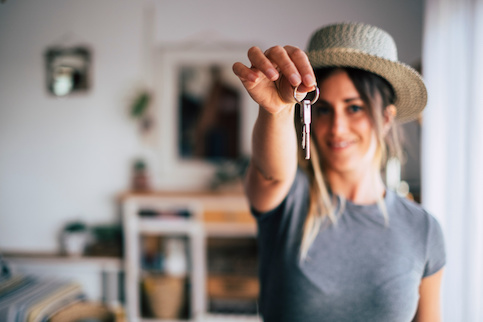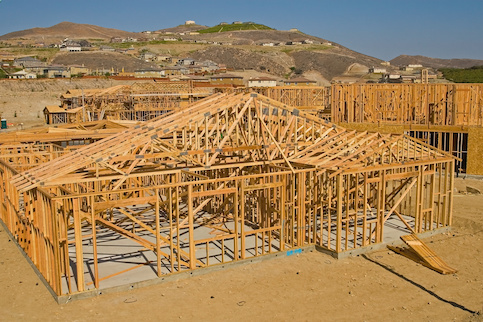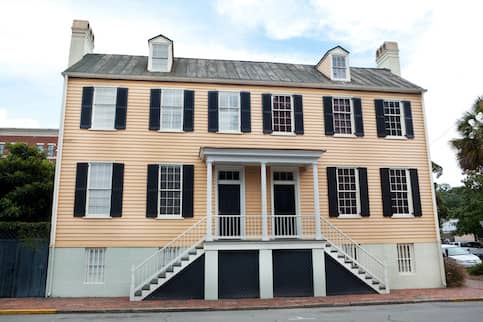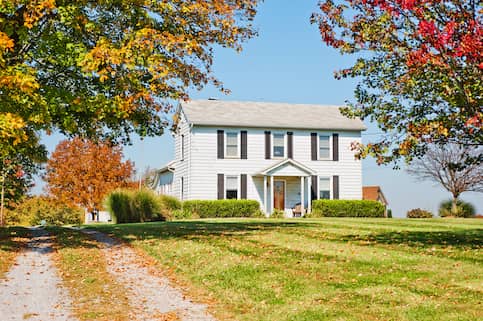Zombie mortgages are unpaid debts that seemingly come back from the dead to haunt homeowners. When a zombie mortgage claim arises, borrowers may be alarmed to discover that they still owe a lot of money on a loan they believed had been paid off or settled.
You may not survive a zombie apocalypse, but armed with the proper knowledge, you can learn how to avoid being a victim of a real-life zombie mortgage threat. Here’s a complete guide to zombie mortgages and how to survive them.
Key Takeaways:
- A zombie mortgage is a mortgage loan that a borrower thought was settled or forgiven, only to find out it was not, sometimes years later.
- Zombie mortgages are typically not owned by the original loan servicer, but rather by debt collectors who purchase them, often adding fees and interest to the original balance.
- Many zombie mortgages happen when a borrower has taken out a zero-down 80/20 loan, a home equity line of credit (HELOC) or a home equity loan (second mortgage).
What Is A Zombie Mortgage?
A zombie mortgage is a home loan you thought was paid off or forgiven, but is still active with a lien remaining on the property, according to the Consumer Financial Protection Bureau. This can happen when lenders write off a debt, such as a second mortgage, and sell it to debt collectors, real estate investors, hedge funds and other buyers. When this happens, a borrower may stop receiving statements or communication on their mortgage or refinance loan and assume the debt is settled.
A zombie mortgage can be an ugly surprise when, years later, the servicer who purchased the lien reaches out and demands payment, including fees and interest, on the loan. If you can’t pay the loan or have it dismissed, your home could end up in foreclosure.
A zombie mortgage is not, however, the same as a zombie property. A zombie property refers to a home that sits vacant because it’s been forgotten or abandoned by its owners.
What’s Your Goal?
Buy A Home
Discover mortgage options that fit your unique financial needs.

Refinance
Refinance your mortgage to have more money for what matters.
Tap Into Equity
Use your home’s equity and unlock cash to achieve your goals.
Where Do Zombie Mortgages Come From?
Zombie mortgages occur when a homeowner takes out a second mortgage in the form of a home equity loan or line of credit and doesn’t pay it back. The homeowner might believe this second mortgage was rolled into the primary mortgage loan, forgiven or discharged through bankruptcy, when it was not.
Many zombie mortgages originated in the years leading up to the 2008 housing crisis. This is because, before then, lenders often issued borrowers two mortgages for the same property instead of a down payment. For example, the primary mortgage might be for 80% of the purchase price, and the second mortgage would be for 20% in order to make homeownership less expensive.
Unfortunately, many of these loans issued prior to 2007 – 2008 were issued without sufficient underwriting. When property values plummeted, many homeowners were left owing much more than their homes were worth. With so many mortgages underwater, many lenders found that foreclosure on second mortgages was too costly. Instead, they sold these past-due second mortgages to debt collectors.
Fast forward to 2020 and beyond. When housing values increased dramatically as the COVID pandemic hit, debt collectors started coming for their money. They also added interest and penalties to the loan amounts.
Here are some common ways a zombie mortgage can manifest:
- You modified your first mortgage and incorrectly assumed your second mortgage was rolled into it.
- You stopped paying your second mortgage, and the lender chose not to foreclose at the time or initiated the foreclosure process, but did not complete it.
- You incorrectly thought you’d settled your second mortgage along with the primary via a short sale, bankruptcy proceeding or deed-in-lieu of foreclosure.
- The lender foreclosed on the first mortgage but not on the second.
Ready To Become A Homeowner?
Get matched with a lender that can help you find the right mortgage.
Can I Lose My Home To A Zombie Mortgage?
“You can most definitely lose your home to a zombie mortgage,” says DJ Olojo, managing director of ASO Custom Homes in Atlanta and host of The Foreclosure Fix podcast. “The mortgage attached to your property is an active lien. The lender can foreclose on you. Until a satisfaction is recorded by the lender, there is always a risk of losing your home.”
If you default on your second mortgage (whether you realize it or not), the lender can start foreclosure even if you’re current on your primary loan. Some lenders will sell unpaid loans to debt collectors without notifying the borrower, and the collectors can surprise the owners with a threat of foreclosure if they don’t pay up.
It can take years, or even decades, before a debt owner contacts the borrower with a demand for payment. When this happens, there is a risk of foreclosure.
However, depending on the state you reside in, debt collectors may have a set number of years to sue you for your debts or foreclose on your property. In New York state, for example, the statute of limitations is six years, so zombie mortgages are time-barred under the state law. A time-barred debt comes with an expiration date when the loan can’t be collected on.
If the debt isn’t time-barred, you could lose your home. Always ask a lawyer to look over a letter from a debt collector with claims about a zombie mortgage debt.
If the lender chooses not to foreclose, you may still be on the line for the debt plus steep retroactive interest and fees, but not always.
“Some of these institutions work on the loans and try to get the borrowers to pay off. Other institutions shelve the files and wait for the borrower to sell or refinance them,” says Olojo. However, zombie mortgages won’t stay hidden forever. “Because these liens are in the public record, they will have to be addressed at some point,” he says.
Take The First Step To Buying A Home
Find a lender that will work with your unique financial situation.
How Common Are Zombie Mortgages?
Collections on zombie second mortgages have been creeping up. A 2024 NPR report found that at least 10,000 zombie mortgages led to foreclosure activity over the previous two years in New York state. The report also found that at least 500 zombie mortgages were pending foreclosure in Maryland.
“Zombie mortgages are widespread,” says Olojo. “When banks charge off loans or when banks go out of business, many loans become zombie mortgages. These mortgages get bundled up and sold to other banks, hedge funds and investors.”
In addition, according to first-quarter data for 2025 aggregated by ATTOM, a trusted provider of real estate data, collections on zombie foreclosures are growing in certain regions of the country, like the Midwest and South.
Signs You Might Have A Zombie Mortgage
Want to know if you might be at risk for a zombie mortgage? Take the following steps to assess your situation.
- Look for debt collection letters. Don’t assume letters and calls from debt collection agencies are scams. They might be indications of a zombie mortgage and should be taken seriously until you can prove whether or not they’re fraudulent.
- Review all your mortgage bills. If you’re still receiving bills for a second mortgage that you thought was paid off, it could mean the loan has not been settled.
- Check public records. Your county recorder keeps public property records that you can search to see if there is a second mortgage or notice of default on your home.
- Review your tax returns. If your loan is forgiven, then it’s typically considered taxable income and you’ll receive a 1099-C form from the IRS. If you did not receive this form, the loan could still be unresolved.
- Check your loan modification paperwork. If you modified your first mortgage, confirm whether your second mortgage was forgiven or rolled into the first. Check whether that remaining debt became a new second mortgage.
- Double-check to make sure your foreclosure paperwork isn’t incomplete. If your first mortgage lender starts the foreclosure process but does not complete it, the debt will remain in your name. If foreclosure is completed and the property is sold, the second mortgage may still exist as unsecured debt.
How To Escape A Zombie Mortgage
If you think you have a zombie mortgage, it’s important to understand your rights. Debt collectors are legally required to provide you with certain information about your debt, known as validation information, within five days of contacting you. It’s essential to take action as quickly as possible if you have one.
“You must treat a zombie mortgage with the same respect as any other active lien,” Olojo says. “After all, they can foreclose on your property.”
Here are some steps to take in case a zombie mortgage rears its head:
- Verify whether the debt is real. The debt collector must provide you with specific information, including the amount of debt, the name of the creditor, a description of your rights and how you can dispute it.
- Follow guidelines on how to communicate with debt collectors. The Consumer Financial Protection Bureau has sample letters for disputing a debt or getting more information about it.
- Consult an attorney. If there is a statute of limitations on your debt, it may have expired. Some states also set time limits on collecting mortgage debt, and some state laws protect against foreclosure due to old mortgage debt. A lawyer can help you determine whether you’re off the hook because too much time has passed.
How To Pay Off A Zombie Mortgage
If the zombie mortgage is real and not expired, you will need to find ways to pay it off. You have several options to help finance the payment to avoid foreclosure.
- Look for debt relief assistance. Talk to your mortgage lender about solutions if you are having trouble paying off a lien. In addition, you can contact the U.S. Department of Housing and Urban Development or the National Foundation for Credit Counseling to find credible low- or no-cost assistance and guidance.
- Borrow against your equity to pay it off. If the debt is real but you’ve avoided foreclosure, you can take out a home equity loan or line of credit to pay it off.
- Use a loan modification. Another way to pay off a zombie mortgage is to modify your primary mortgage and roll the additional debt into its principal.
- Take out a personal loan. If you need to borrow money to pay off the debt but don’t want to tap into your equity, you could consider taking out a personal loan instead. Just beware that personal loans typically come with higher interest rates.
- Consider a deed-in-lieu of foreclosure. A deed-in-lieu of foreclosure is a method by which borrowers can surrender ownership of their home to the lender to avoid foreclosure. This can help homeowners with zombie mortgages avoid being held personally liable for the debt.
- Hold a short sale. A short sale is a way for homeowners with underwater mortgages to avoid foreclosure by selling the home for less than the full amount owed on the mortgage.
FAQ
The Bottom Line About Zombie Mortgages
A debt collector contacting you about a zombie second mortgage can be quite a scare. First, you should figure out whether the debt is real by reviewing your paperwork and checking public records. If you’re uncertain, you can ask a lawyer to guide you through your options. If the debt is real, it will need to be dealt with to avoid losing your home through foreclosure.

Maya Dollarhide
Maya Dollarhide is a freelance writer with over a decade of experience covering personal finance topics. Her writing credits include AARP, Bankrate, Investopedia, CNN.com, Yahoo Finance and Lending Tree. She enjoys writing articles and producing multimedia content that helps individuals and families make informed decisions about their money, from mortgages and home loans to reducing credit card debt and saving for retirement. She has also created educational materials for use in schools to teach young people about personal finance, from opening up a bank account to saving for college and beyond.












